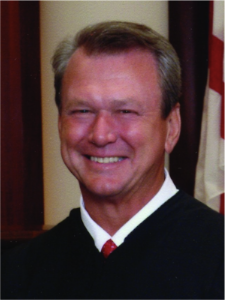Alabama Appellate Courts
Voter Guide 2010
Nonpartisan information about the Alabama Courts of Appeal and the
candidates running in those elections in 2010.![]()
Previous Page

|
Michael F. "Mike" Bolin |
Candidate Responses to Voter Guide Questions Candidates were asked to provide answers to seven fundamental, nonpartisan questions for this voter guide. Candidates were asked not to make comparisons with any other candidate. Candidates were advised that their answers would be limited to 250 words per question. Each candidate's answers are reprinted verbatim here up to that word limit.
|
